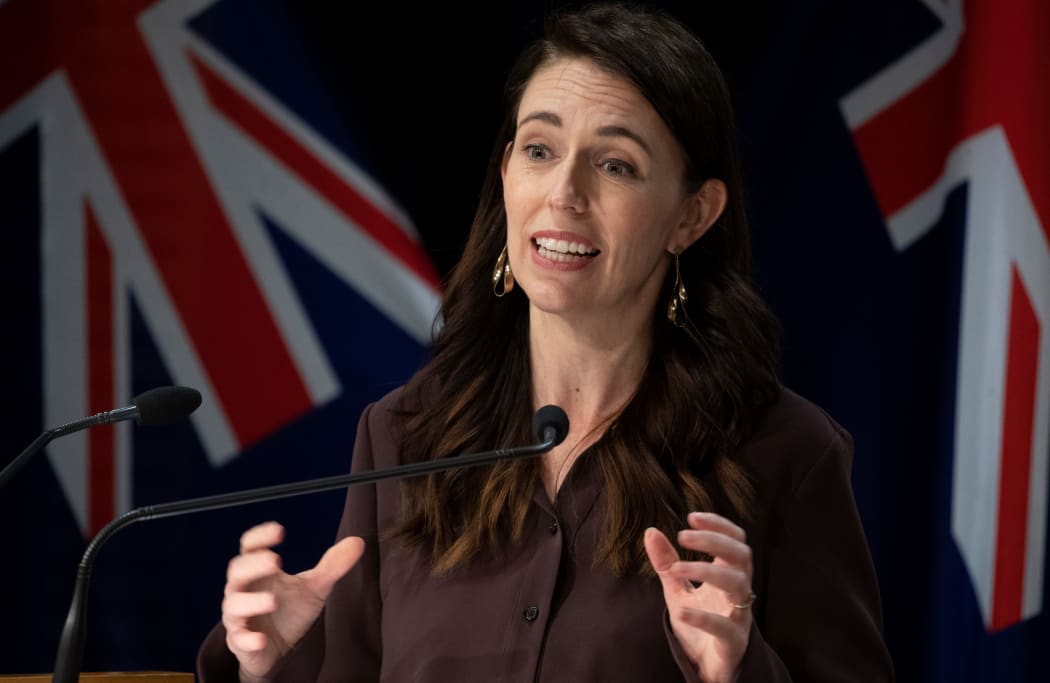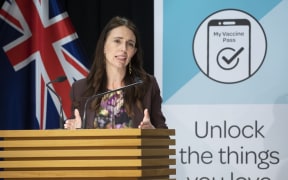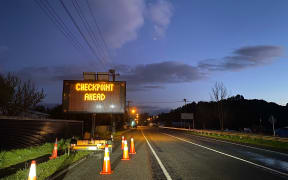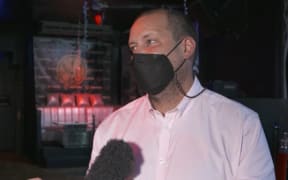Ōpōtiki is going orange but it is making no difference to a councillor calling for holidaymakers to stay away.

Prime Minster Jacinda Ardern announced upcoming traffic light setting changes on Monday afternoon. Photo: POOL / NZME / Mark Mitchell
The small town in the Eastern Bay of Plenty has very low vaccination rates but will move out of the red Covid-19 traffic light setting as New Years Eve dawns, allowing much larger gatherings.
In other areas on the move, there are a range of opinions about how welcome tourists are, and how we should travel this summer.
Louis Rāpihana is a district councillor and member of the iwi response unit for Te Whānau-ā-Apanui and he was very clear about who he would like to see in town this summer.
"There's a group of people that we want to come back: that's our own whānau. The ones that I, as an iwi member, am discouraging from coming here is very much the holiday makers. Those are the ones that just travel around with no connection to the land or the people in it," Rapihana said.
Ōpōtiki is just 66 percent fully vaxxed, and has a number of holiday homes.
Rapihana was worried what an incursion of the virus could do.
"We've got a huge vulnerable community here - old, young and our currently ill whānau members. Our systems aren't strong enough to cope ... because we are so remote and isolated," Rapihana said.
It was quite a different reaction from a tourism operator in Rotorua.
Tim Cossar of Te Puia, the multifaceted tourist attraction, wanted as many people as possible there from Wednesday.
"Certainly we want people travelling to and from Rotorua. There's no question in our minds that we need a really strong Christmas/New Year trading period, and then a strong January and February."
It was a crucial period for the region, for businesses and for jobs, with international arrivals unlikely to get back to the pre Covid-19 levels for some time, he said.
"It's a long, long pathway, and we still have to get through a good eight to nine months before international returns in earnest."
Further south and around the East Coast, Tairāwhiti is another area moving from red to orange traffic light setting.
Pene Brown of Te Aitanga a Māhaki Trust was relieved that the big event of the summer Rhythm and Vines had been postponed to Easter.
He was not expecting there to be any big events over summer.
"No, we're not. We know that some areas will have that, maybe Tauranga and some places where they're happy with their vaccination rates and they've had the organisation. But we know that a lot of other events have been cancelled here in Tairāwhiti, and not just Rhythm and Vines."
They were expecting an uncharacteristically quiet summer - the first one in a while - and they were now confident it would be on the safer side, all risks considered, he said.
"I think we've discouraged a lot of the larger settings that take place, at either marae or either traditional functions that happen - beach races and things like that.
"I believe we can manage the visitor load that may turn up."
The government was banking on vaccination rates in the areas rising over the next two weeks as an increase in gathering numbers brings an increase in risk.




